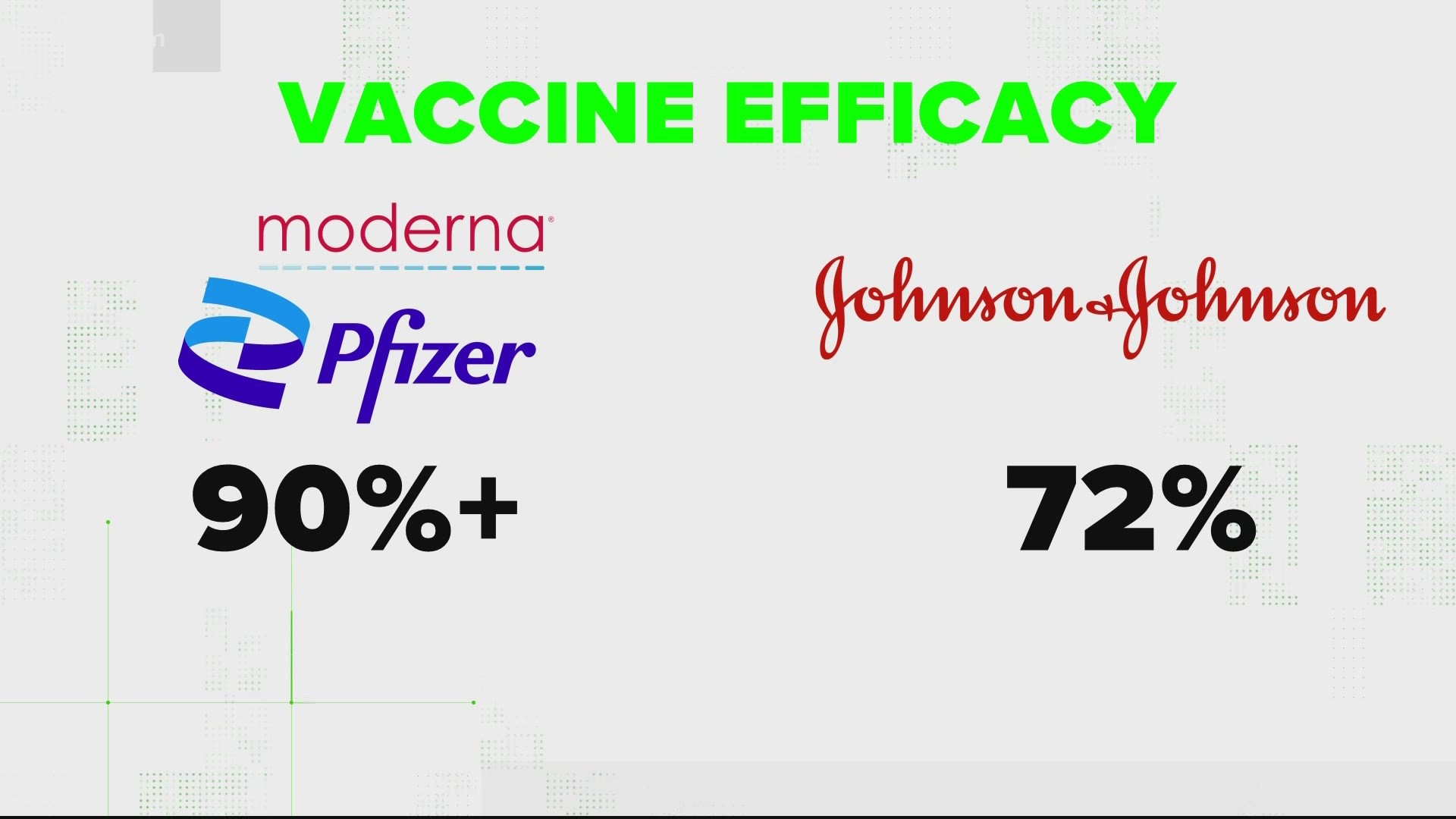WASHINGTON — Question:
Should people turn down the Johnson and Johnson vaccine and wait for the Moderna or Pfizer vaccine instead?
Answer:
No. A team of medical experts confirmed for the Verify team that people should feel comfortable taking the Johnson and Johnson vaccine.
Although the Johnson and Johnson vaccine trial showed a lower efficacy rate in preventing moderate to severe cases, it was very successful in stopping serious illness, and 100 percent effective in preventing hospitalizations or death.
Our experts also say it's unclear whether the two efficacy rates can be compared, since the Johnson and Johnson trial was done at a later date, when variants were more widespread.
SOURCES:
- Dr. Namandje N. Bumpus, Director of the Department of Pharmacology and Molecular Sciences at Johns Hopkins Medicine
- Dr. William Schaffner, Professor of Preventive Medicine and Health Policy at Vanderbilt University
- Dr. Linda Nabha, Infectious Diseases Expert at University of Pittsburgh
- Food and Drug Administration, "Vaccines and Related Biological Products Advisory Committee Meeting, February 26, 2021"
PROCESS:
With the FDA's emergency use approval of the Johnson and Johnson vaccine, there are now three vaccines being used in the United States. Other than Johnson and Johnson, the FDA has approved a vaccine from Pfizer and another from Moderna.
Experts emphasize that all three of these vaccines have proved to be safe and effective. However, many have wondered whether the Moderna and Pfizer vaccines are preferable because they have a higher efficacy rate.
Some on social media have stated that they are going to pass on the Johnson and Johnson vaccine, in an effort to get the Pfizer or Moderna vaccines.
"When it's my turn," wrote one user on Twitter. "I'll take either Pfizer or Moderna, but Johnson and Johnson is a hard pass."
Medical experts told the Verify team this is absolutely the wrong approach since all three of the vaccines have proven successful at stopping serious illness, hospitalizations, and death.
"They're all in the same ballpark in terms of effectiveness," said Dr. William Schaffner from the Vanderbilt University School of Medicine. "I actually know what the best vaccine is. The best vaccine is the one that's available to you today. Roll up your sleeve and get it."
The Verify team took a deeper look at the efficacy statistics, to get a better understanding of how the three vaccines compare.
Explaining efficacy rates
The Johnson and Johnson vaccine had an efficacy rate of 66%in preventing moderate to severe vaccines. This compared to an efficacy rate of about 95% for Pfizer and Moderna.
However, the trials showed that the Johnson and Johnson vaccine was far more successful at fighting a serious illness. The vaccine was 85% effective in preventing the most severe diseases, and 100 percent effective in stopping hospitalizations and death.
"These are the things to really think about," said Dr. Namandje Bumpus. "And not get caught up in comparing the numbers. These vaccines are all safe and effective."
Another major factor is that the Johnson and Johnson vaccine was tested when there were more variants spreading, which could have impacted the statistics.
The Johnson and Johnson vaccine also has some major advantages since it does not need to be stored at freezing temperature in the way that the Pfizer and Moderna vaccines do.
"These vaccines work," said Bumpus. "And they're safe and effective. I think we cannot compare and focus on these efficacy rates."


